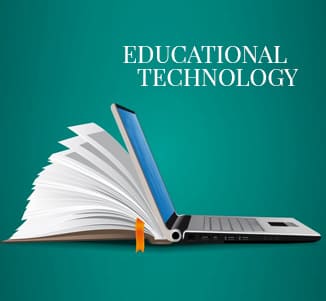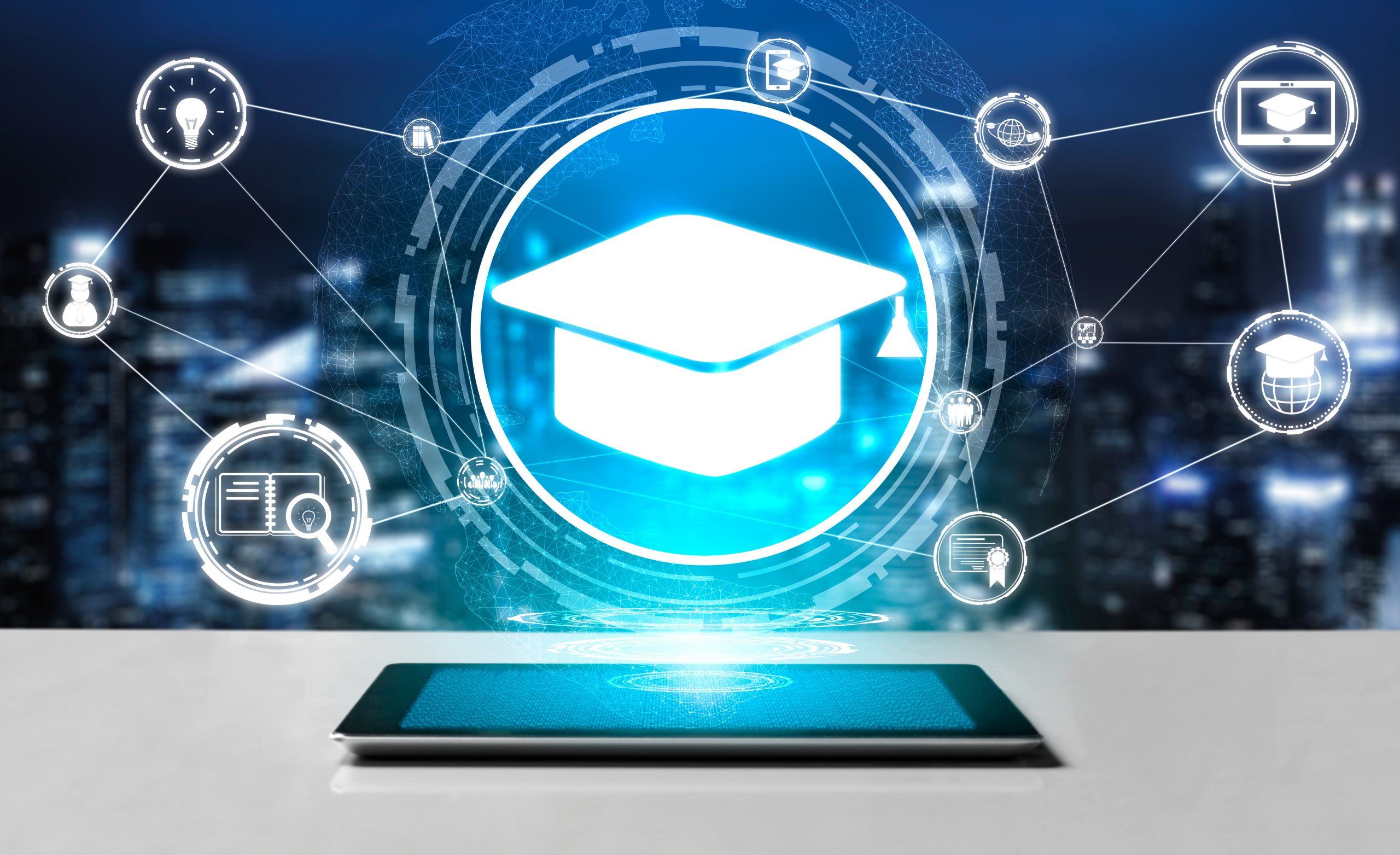Stay Ahead of the Curve with AI Tools Developed for Success in Every Area
Stay Ahead of the Curve with AI Tools Developed for Success in Every Area
Blog Article
The Duty of Modern Technology Education And Learning in Shaping Tomorrow's Workforce: Insights for Educators
As the landscape of work remains to advance drunk of technical improvements, the function of modern technology education and learning becomes significantly important in preparing students for future professions. Educators are entrusted with gearing up students not only with technical effectiveness however also with crucial soft skills such as essential thinking and collaboration. By examining cutting-edge curricular strategies and fostering collaborations with industry leaders, we can better recognize just how to efficiently grow a workforce that satisfies the needs of an electronic economic situation. What techniques can instructors employ to connect the void between education and learning and industry assumptions?

Importance of Modern Technology Education
In a significantly electronic globe, the value of technology education and learning can not be overemphasized. As markets develop and incorporate advanced innovations, a versatile education in modern technology ends up being important for both individual and specialist advancement. Modern technology education outfits individuals with the abilities required to browse the complexities of modern-day work environments, cultivating adaptability in a setting identified by fast adjustment.
In addition, technology education and learning advertises vital reasoning and analytic skills. Make Money. By involving with numerous technical tools and systems, students boost their capacity to analyze information, draw connections, and develop cutting-edge solutions to real-world problems. This educational focus not only prepares students for specific careers yet also cultivates an attitude that is necessary for long-lasting understanding
In addition, modern technology education and learning plays a critical duty in linking the electronic divide. By giving fair accessibility to technical sources and training, universities encourage all trainees, regardless of socioeconomic status, to participate in the digital economy. Finally, as we relocate additionally into the 21st century, prioritizing modern technology education and learning is crucial for preparing a qualified workforce with the ability of growing in a progressively interconnected and technically driven global landscape.
Key Abilities for Future Labor Force

On top of that, proficiency in electronic proficiency is important; workers should navigate a variety of software devices and systems successfully. Partnership abilities are also paramount, as most modern work environments emphasize teamwork throughout diverse, frequently remote, environments. Creativity and innovation will certainly be vital in driving the advancement of brand-new options and products in an affordable market.
Understanding data analytics and cybersecurity concepts is progressively essential, reflecting the expanding significance of data-driven decision-making and shielding sensitive information. A fundamental knowledge of fabricated intelligence and maker learning will certainly empower future experts to utilize these innovations properly.
Educators must as a result focus on the combination of these skills into their innovation educational program, ensuring trainees are well-appointed to fulfill the needs of a dynamic task market. By cultivating these expertises, we prepare learners not just for their very first work, however, for long-lasting jobs in an ever-evolving technological landscape.
Integrating Technology in Educational Program
Integrating technology into the curriculum is necessary for modern education, with 85% of educators acknowledging its significance in improving trainee involvement and finding out outcomes. As technology continues to develop, schools need to adjust to prepare trainees for a future where electronic proficiency is extremely important. This integration entails not just using digital devices however also the incorporation of innovative resources that cultivate critical reasoning, creative thinking, and cooperation.
A well-structured technology educational program need to straighten with academic requirements while dealing with the diverse learning demands of trainees. This can include a blend of on the internet platforms, interactive software application, and multimedia sources that accommodate various knowing styles. Educators have to get adequate training to properly execute these technologies, making sure that they are geared up to help with a technologically enriched understanding atmosphere.
In addition, integrating modern technology into the educational program enables real-world applications, linking the space in between theoretical expertise and useful abilities. By engaging pupils with immersive and appropriate experiences, educators can cultivate a labor force that is not only technically competent yet also adaptable and all set to meet the difficulties of tomorrow's work market. Emphasizing innovation in education is not simply a fad; find this it is a requirement for forming proficient future professionals.
Innovative Teaching Methods
Embracing ingenious training strategies is important for cultivating a efficient and appealing learning atmosphere in today's academic landscape. In modern technology education and learning, instructors must employ techniques that not only catch pupils' passion yet also outfit them with the abilities necessary for future careers. One effective method is project-based knowing, which motivates trainees to engage in real-world issues, advertising important thinking and cooperation.
In addition, including gamification can boost inspiration and retention, making complex concepts extra satisfying and obtainable. Grants. Turned classrooms, where trainees assess educational web content in your home and engage in hands-on activities throughout course, also confirm beneficial by making best use of class interaction and application of knowledge
Furthermore, using technology-enhanced knowing tools, such as simulations and digital labs, allows pupils to experiment and check out in a safe setting, cultivating technology. Customized learning experiences, customized to private pupil requirements and learning designs, can even more improve engagement and success.
Ultimately, by incorporating diverse and cutting-edge training approaches, teachers can develop a dynamic understanding atmosphere that prepares pupils for the difficulties of tomorrow's labor force, ensuring they are not just experienced but experienced and additionally adaptable.
Cooperation With Industry Allies
Working together with sector companions is essential for connecting the space between education and learning and the workforce. Such partnerships supply trainees with sensible understandings and experiences that are critical for their professional development.
Industry partnerships can take lots of types, consisting of teaching fellowships, mentorship programs, and visitor lectures. These efforts enable trainees to use their discovering in real-world contexts, promoting a deeper understanding of market standards and assumptions. In addition, these collaborations can cause the growth of specific programs that attend to particular workforce requirements, boosting the significance of innovation education.
Furthermore, market partners can add sources, such as devices and financing, that enhance academic offerings. By promoting a culture of collaboration, instructors and sector leaders can interact to cultivate a knowledgeable labor force that is prepared to meet the obstacles of tomorrow. Eventually, these partnerships are More Info important for creating a smooth transition from education and learning to employment, profiting both trainees and employers alike.
Final Thought
In conclusion, modern technology education functions as a foundation for developing a competent labor force efficient in navigating the intricacies of a digital economic situation. By highlighting crucial abilities such as digital literacy, creative thinking, and information analytics, teachers can enhance trainee preparedness for diverse occupation opportunities. The combination of innovative mentor strategies and collaboration with market companions even more improves the learning experience, making certain that students are not only geared up with understanding but likewise prepared to fulfill the demands of an ever-evolving job market.
As the landscape of work proceeds to evolve under the impact of technological improvements, the duty of technology education ends up being significantly crucial in preparing trainees for future professions. As markets evolve and integrate sophisticated modern technologies, a versatile education and learning in modern technology becomes vital for both personal and specialist development.Integrating technology into the curriculum is vital for modern-day education and learning, with 85% of instructors identifying its importance in enhancing trainee involvement and finding out end results. In innovation education, educators must employ methods that not just record pupils' passion however additionally furnish them with the skills necessary for future my sources careers.In conclusion, modern technology education and learning serves as a keystone for developing a skillful labor force capable of browsing the intricacies of an electronic economic climate.
Report this page